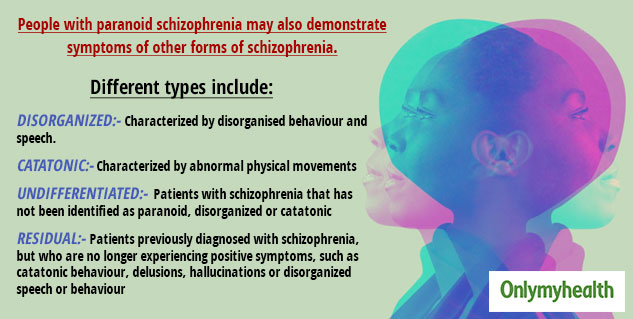
The negative symptoms of schizophrenia can often lead to relationship problems with friends and family as they can sometimes be mistaken for deliberate laziness or rudeness.
Paranoid schizophrenic tv#
They may have trouble reading newspaper articles or watching a TV programme. Some people find it hard to concentrate and will drift from one idea to another. People experiencing psychosis often have trouble keeping track of their thoughts and conversations. They may believe people on TV or in newspaper articles are communicating messages to them alone, or that there are hidden messages in the colours of cars passing on the street. Some people who experience delusions find different meanings in everyday events or occurrences. They may believe they're being chased, followed, watched, plotted against or poisoned, often by a family member or friend.


Someone experiencing a paranoid delusion may believe they're being harassed or persecuted. For example, if they have heard voices describing their actions, they may have a delusion that someone is monitoring their actions. Some people develop a delusional idea to explain a hallucination they're having. Delusions can begin suddenly or may develop over weeks or months. It may affect the way the person behaves. DelusionsĪ delusion is a belief held with complete conviction, even though it's based on a mistaken, strange or unrealistic view. Voices may come from different places or 1 place, such as the television. The voices might describe activities taking place, discuss the hearer's thoughts and behaviour, give instructions, or talk directly to the person. Some people describe the voices they hear as friendly and pleasant, but more often they're rude, critical, abusive or annoying. These studies show the experience of hearing voices as a real one, as if the brain mistakes thoughts for real voices. Research using brain-scanning equipment shows changes in the speech area in the brains of people with schizophrenia when they hear voices. Hallucinations are very real to the person experiencing them, even though people around them cannot hear the voices or experience the sensations.

The most common hallucination is hearing voices. Hallucinations are where someone sees, hears, smells, tastes or feels things that do not exist outside their mind. negative symptoms – where people appear to withdraw from the world around then, take no interest in everyday social interactions, and often appear emotionless and flat.positive symptoms – any change in behaviour or thoughts, such as hallucinations or delusions.The symptoms of schizophrenia are usually classified into: People often have episodes of schizophrenia, during which their symptoms are particularly severe, followed by periods where they experience few or no symptoms. Symptoms such as becoming socially withdrawn and unresponsive or changes in sleeping patterns can be mistaken for an adolescent "phase". The first signs can be hard to identify as they often develop during the teenage years. Schizophrenia changes how a person thinks and behaves.


 0 kommentar(er)
0 kommentar(er)
